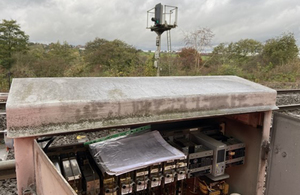Mr. Chair, I am delivering this statement on behalf of Albania, Austria, Belgium, Bulgaria, Croatia, Cyprus, Czech Republic, Denmark, Estonia, Finland, France, Germany, Greece, Hungary, Iceland, Ireland, Italy, Latvia, Lichtenstein, Lithuania, Luxembourg, Malta, Montenegro, the Netherlands, North Macedonia, Norway, Poland, Portugal, Romania, Slovakia, Slovenia, Spain, Sweden, Switzerland, the United Kingdom, Ukraine, the United States, and my own country Canada.
Two years ago, on 5 November 2020, Professor Wolfgang Benedek presented the independent report on the human rights situation in Belarus under the OSCE’s Moscow Mechanism to the Permanent Council. The conclusions were clear: The 9 August presidential election was neither free nor fair, and “massive and systematic” violations of human rights and fundamental freedoms had been committed by the Belarusian security forces.
One year ago, on 4 November 2021, as a response to the deteriorating human rights situation and the Belarusian authorities’ failure to respond satisfactorily to the recommendations addressed to them in the Moscow Mechanism report, a group of 35 OSCE participating States invoked the Vienna (Human Dimension) Mechanism requesting information on a number of serious concerns. Unfortunately, one year later, we today note with regret that the recommendations for Belarusian authorities in the Moscow Mechanism report remain unaddressed, and our concerns for the human rights situation in Belarus are more dire than ever.
Over the past two years, the authorities in Belarus have continued their brutal and unprecedented crackdown on defenders of democracy in Belarus, including civil society and independent voices. The exercise of human rights and fundamental freedoms, including the freedoms of expression, peaceful assembly, and association, is severely repressed, and those attempting to act on those rights and freedoms are systematically detained, abused, and subjected to other forms of intimidation and only harassment. According to credible reports, the number of political prisoners is now more than 1,350. This includes many ordinary Belarusians who simply protested in 2020; journalists, media actors, opposition figures, and human rights defenders, sentenced in some cases to well over a decade simply for exercising their fundamental rights. As a consequence, tens of thousands of Belarusians have been, and continue to be, forced to flee the country, to leave their homes and in some cases loved ones behind due to the untenable situation.
In addition, several credible, international reports have documented the continued pervasive use of torture and other ill-treatment. The Belarusian authorities have further increased harassment and intimidation efforts by widening of the scope of the death penalty to vaguely defined “attempted terrorist activities”. This is an alarming step, the real objective of which is to further increase repression against defenders of democracy. Mr. Chair, In the initial letter invoking the Vienna Mechanism on 4 November 2021, we asked for information from the Belarusian authorities on a number of concerns, including on the credible reports on continuing unjust arrests and detentions, as well as the targeting of opposition figures. The Belarusian Delegation’s reply did not acknowledge our legitimate concerns on any of these issues; for example, the Belarusian Delegation simply took exception to the term ‘political prisoner’.
The inadequate responses we have continued to receive from the Belarusian authorities, combined with the deteriorating developments we have witnessed over the past year, clearly demonstrate there is no change in approach by the Belarusian authorities.
On the contrary, in recent months, the Belarusian authorities have intensified the brutal and unprecedented repression of the Belarusian people, and has on top of that been facilitating Russia’s war of aggression against Ukraine in violation of international law.
Mr. Chair,
Even as the human rights situation in Belarus has continued to deteriorate, the Belarusian Delegation has often claimed to seek dialogue on these issues here in the Permanent Council. The Vienna Mechanism is a tool for such dialogue, but it requires the Belarusian authorities to engage substantially, realistically and honestly on the subject. It requires the Belarusian authorities to recognise our legitimate continuing concerns, which mirrors those of civil society, independent media, and human rights defenders.
Against this backdrop, we repeat our questions raised under the OSCE Vienna Mechanism in the Permanent Council. We encourage the Belarusian authorities to consider these questions carefully and to provide genuine answers to this Council, including a detailed explanation of their reactions to the recommendations contained in the 5 November 2020 report under the OSCE Moscow Mechanism.
Finally, we call for the immediate and unconditional release of all political prisoners in Belarus. We urge the Belarusian authorities to fully implement their international obligations and OSCE commitments, and to make use of the OSCE’s tools and mechanisms to help resolve the continuing human rights crisis.
Thank you.

